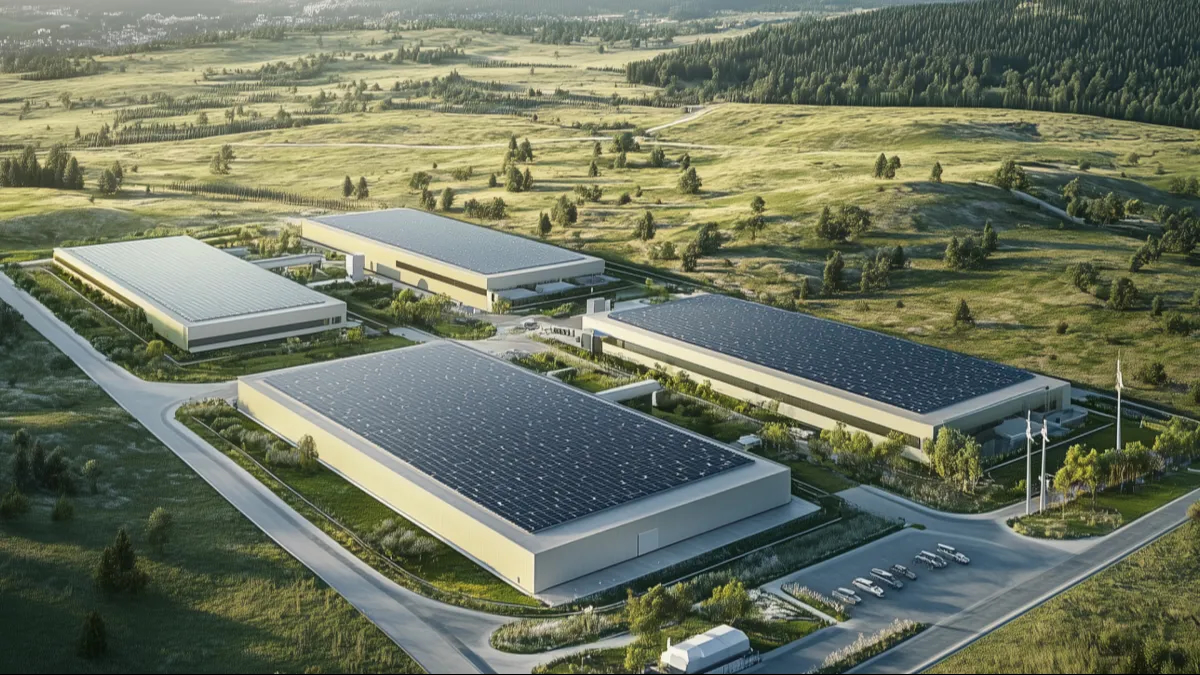Meta and Sage Geosystems have announced a pioneering agreement to expand geothermal power generation in the US.
The partnership, unveiled at the US Department of Energy's Catalyzing Next Generation Geothermal Development Workshop, aims to deliver up to 150 megawatts of new geothermal baseload power to support Meta's data centre growth.
This collaboration marks the first use of next-generation geothermal power east of the Rocky Mountains, demonstrating the potential for geothermal energy as a viable renewable source across the country. Sage Geosystems will utilise its proprietary Geopressured Geothermal System (GGS) to provide carbon-free power for Meta's data centres.
Urvi Parekh, head of renewable energy at Meta, expressed enthusiasm for the project, stating, "Meta thanks the Department of Energy's leadership on promoting and supporting the exploration of new energy sources like geothermal. That leadership supports Meta's goal to enable the addition of reliable, affordable, and carbon-free power to the grid with this geothermal energy deal."
The innovative technology developed by Sage Geosystems, which was validated in the field in early 2022, represents a significant advancement in the clean energy sector. It showcases the ability to harness geothermal energy in diverse locations, promising a new era of reliable, sustainable baseload power and enhanced grid stability.
Cindy Taff, chief executive officer of Sage Geosystems, highlighted the importance of public-private collaboration in driving the clean energy transition. She remarked, "We are thrilled to be at the forefront of the next generation of geothermal technology and applaud the DOE for supporting the commercialisation of innovation solutions."
The US Energy Deputy Secretary David Turk emphasised the significance of geothermal energy in meeting the growing demand for clean, firm power. He stated, "The Administration views this increased demand as a huge opportunity to add more clean, firm power to the grid and geothermal energy is a game-changer as we work to grow our clean power supply."
This partnership comes at a crucial time as Meta continues to invest heavily in infrastructure to support its push into artificial intelligence. The company's capital expenditure for 2024 is forecast to be between $37 billion and $40 billion, with infrastructure costs expected to be a significant driver of expense growth in 2025.
The first phase of this innovative project is aimed to be online and operational by 2027. While the exact location is yet to be determined, the companies have confirmed it will be east of the Rocky Mountains.
Latest News
-
xAi faces global scrutiny as governments probe sexualised AI
-
Uber rewrites driver contracts to sidestep new VAT rules on private hire fares
-
Currys overhauls payment systems to adopt emerging tech
-
Ocado to widen access to tech as exclusivity agreements end
-
Asda hires new group CIO to lead tech and data teams
-
Morgan Stanley warns 200,000 European banking roles 'under threat' from AI
The future-ready CFO: Driving strategic growth and innovation
This National Technology News webinar sponsored by Sage will explore how CFOs can leverage their unique blend of financial acumen, technological savvy, and strategic mindset to foster cross-functional collaboration and shape overall company direction. Attendees will gain insights into breaking down operational silos, aligning goals across departments like IT, operations, HR, and marketing, and utilising technology to enable real-time data sharing and visibility.
The corporate roadmap to payment excellence: Keeping pace with emerging trends to maximise growth opportunities
In today's rapidly evolving finance and accounting landscape, one of the biggest challenges organisations face is attracting and retaining top talent. As automation and AI revolutionise the profession, finance teams require new skillsets centred on analysis, collaboration, and strategic thinking to drive sustainable competitive advantage.
© 2019 Perspective Publishing Privacy & Cookies




.jpg)



Recent Stories